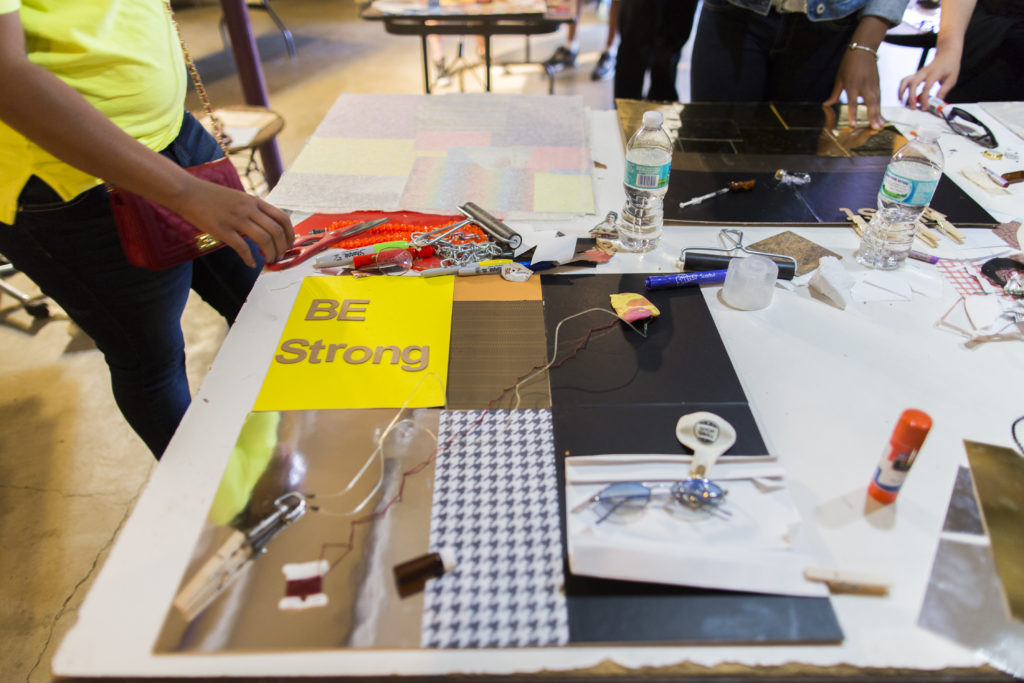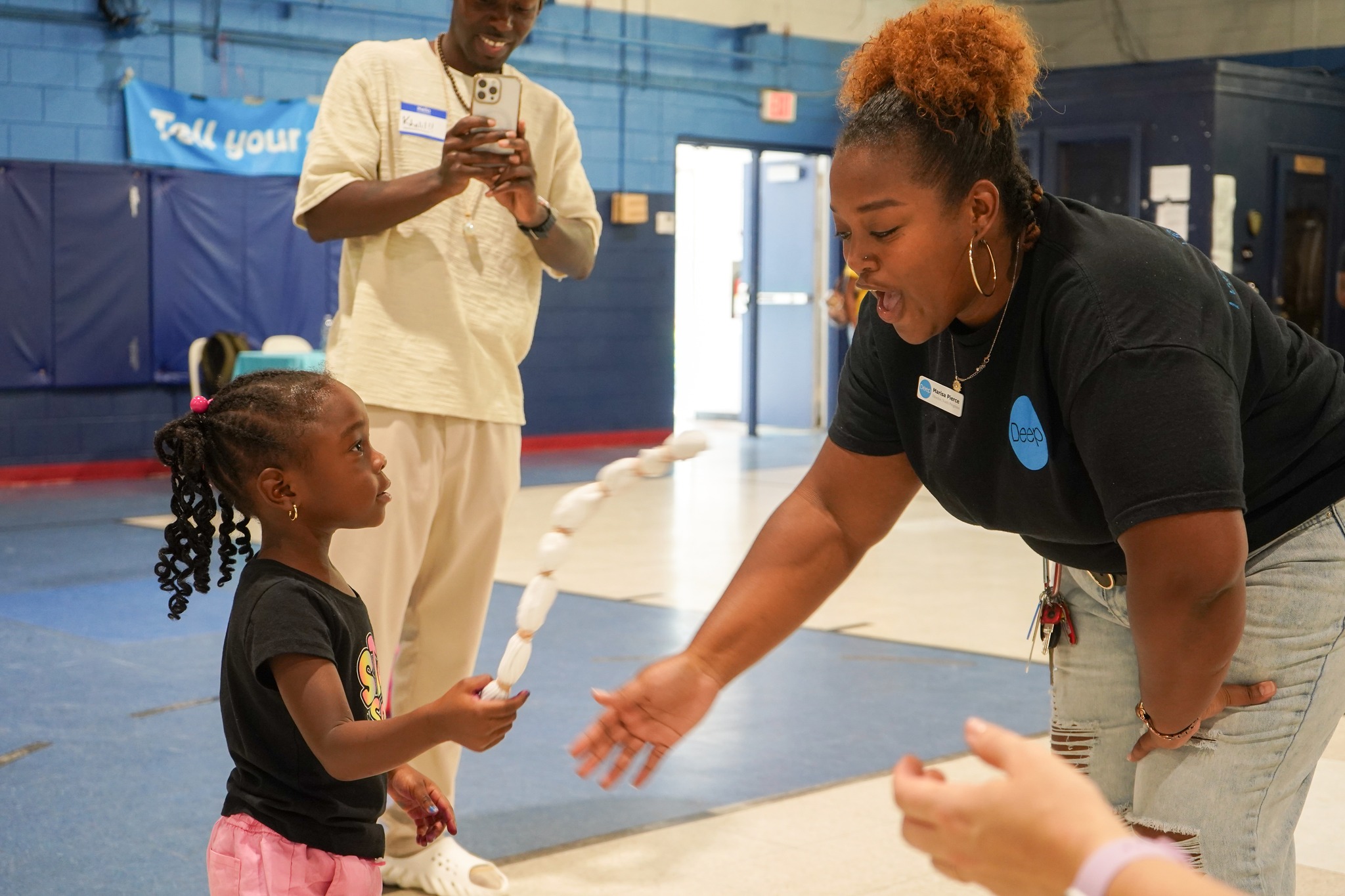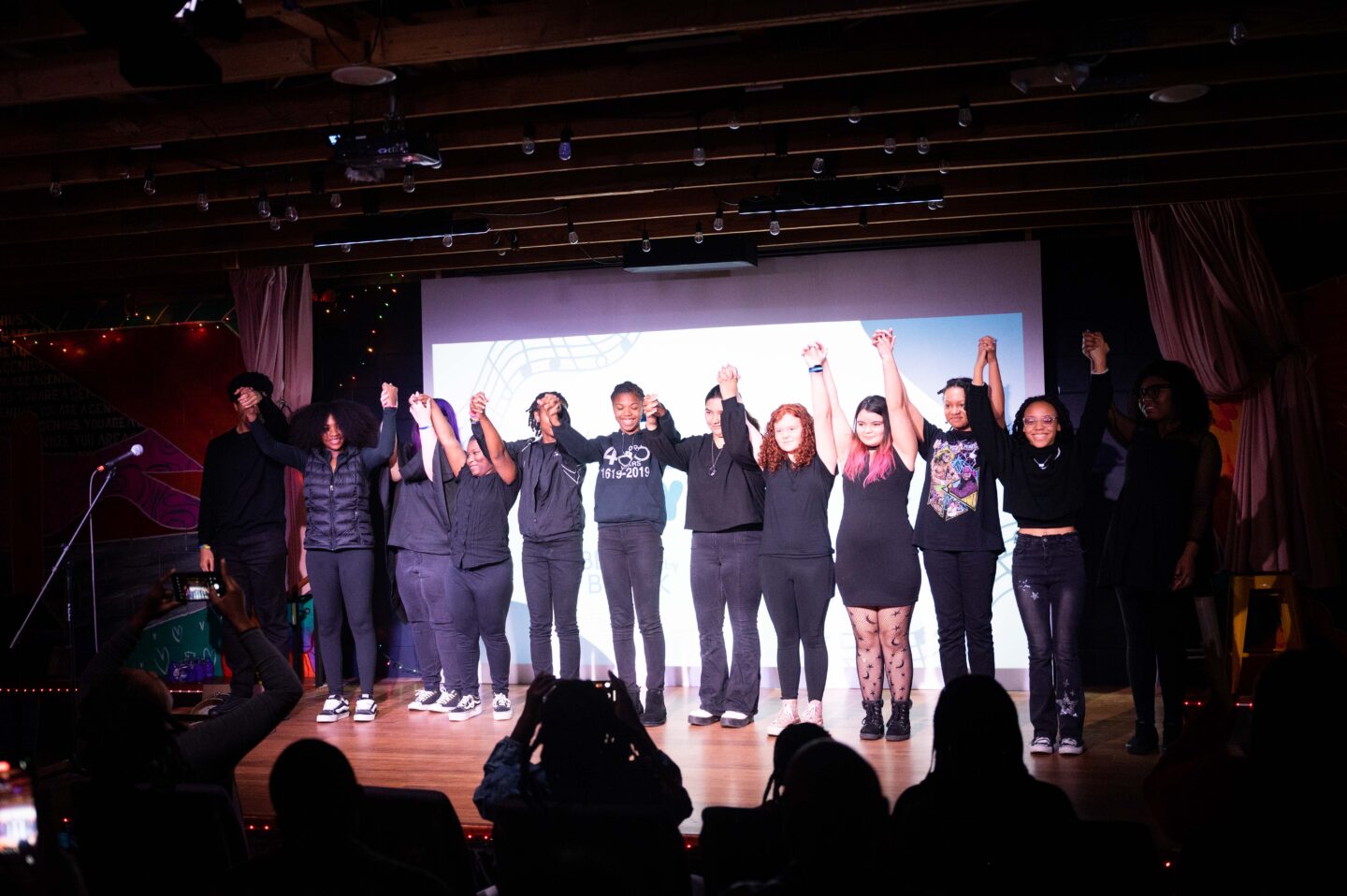Our Story
Our Mission
Deep Center’s mission is to empower Savannah’s young people to thrive as learners, community leaders, and agents of change. Through creative writing, cultural production, and art, Deep creates platforms for the city’s youth and the village of support around them, including their families and adult allies, to share stories, engage in debates, and make Savannah a more just and equitable place.
Our Framework
Deep Center’s framework is anti-racist, trauma-informed, and culturally responsive. We promote a roots-cause model of youth and community development that works on three parallel tracks: direct service, systems change, and narrative change. Deep lifts up youth and their village, advocates for just policies, and disrupts dehumanizing narratives with firsthand stories about youth and their families healing, growing, and thriving through individual growth and collective action.
In collaboration with adult writers, artists, and mentors, Deep youth learn how to tell their stories powerfully, celebrate their neighborhoods, elevate Savannah’s forgotten narratives, and find their place in history and current events. When this happens, they gain agency as learners, artists, and community leaders able to speak out on the issues affecting them and their families. And in collaboration with Deep’s youth leaders, adults in their village learn how to step back, listen, and work from the healing-centered paradigm when supporting young people.
Vision: The Change We See
We envision a Savannah where our young people and their families thrive as learners, community leaders, and artists; and we envision a community, a government, and institutions that hear, value, and respond to their voices with equity, justice, and care.
Our Why

Deep Center strengthens Savannah’s communities
The numbers on poverty in Savannah are stark: 28% of residents and 42% of children live in poverty, 67% of public school students qualify for free or reduced-price lunch, and poverty disproportionately impacts communities of color to an alarming degree. Research shows strong links between poverty and trauma and the capacity to learn and thrive. Savannah’s public schools alone cannot meet the manifold needs of children growing up with limited resources. And adults and families living in poverty endure the challenges of life in an age of increasing stigmatization and diminishing supports.
Furthermore, Savannah’s young people from vulnerable populations struggle to express themselves, hear directly or indirectly that their stories don’t matter, and are bombarded with negative messages about themselves and their communities with few opportunities to respond with truth and their own perspectives. And Savannah is a place where young people are told that if they want to leave their lane they should leave the city. And so they do: census data show that while Savannah’s population steadily increases the overall percentage of young people is declining.
Moreover, Savannah is both unique in its place in U.S. history and in the American South, yet at the same time very much reflective of our nation’s historical and contemporary challenges—especially when it comes to the communities with whom Deep Center works. The institutions and narratives that make up Savannah’s civic, educational, and cultural systems manifest this history and its harms. And the structures that are supposed to support youth and their families too often cause more hurt than healing. This can be seen most strikingly in how Savannah chooses to allocate resources for children in need: to courts and police rather than mental health, education, enrichment programs, and other services that foster healthy development. Chatham County’s juvenile justice system has nearly twice the number of court-involved youth as any other county in the state of Georgia (including Atlanta), and African American boys are seven times more likely to be referred to court than their white counterparts. The culture in which Savannah’s young people are immersed is one of punishment rather than restoration and care. And the ways punishment is applied do not account for history, systemic harms, and the often traumatizing daily experiences of growing up in Savannah.
Core Values: What Drives Us
Depth: We believe that a deep exploration of our community’s shared and diverse narratives is the surest way to open minds, encourage hearts, and inspire change.
Community: We believe that solutions are found both locally and nationally. We leverage the talent, creativity, and care that exists in our city while sharing ideas with experts and practitioners nationwide.

Deep Center centers a holistic approach for youth and adults
Equity: We believe in doing the right thing for Savannah’s most vulnerable populations.
Root-Cause Analysis: We believe that the people are not the problem, the problem is the problem. In an inequitable ecosystem that is the product of an unjust history, putting the burden of change only on young people and vulnerable populations ignores their day-to-day realities, sets them up to fail, and misses the root causes of their challenges. A clear-eyed approach focuses on strengthening not simply young people, but the village around them and the unjust structures at odds with their wellbeing.
Co-learning: We believe that we build true knowledge and understanding by valuing every person in the room for the unique fund of knowledge they bring.

Deep recognizes the world is hard – which is why we prioritize joy
Truth: We believe that when we value the honest voices of young people, they gain confidence in themselves and the power to take charge of their stories and to transform their communities.
Courage: We believe that honesty—both in writing and in life—requires bravery and conviction. We strive to inspire intellectual and emotional courage in our young people.
Joy: We believe that true creativity springs from a motivated and joyful approach to complex problem-solving. We delight in our work and deliberately incorporate fun into everything we do.
